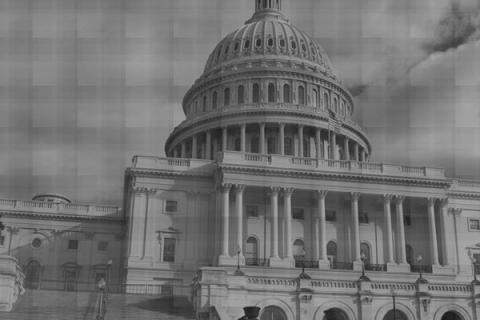The big story this weekend is skyrocketing gas prices and their effect on America's economic outlook, which is at its lowest level since President Obama took office.
Reports of record gas prices from all over the country dominated headlines and news commentary Friday morning, leaving Americans wondering just why gasoline has become so expensive and how it will affect any chances of an economic recovery. The average price of gasoline nationwide hit $3.85 Friday, up 99 cents over the last year-- a 35% increase in gas prices that shows no signs of slowing. With prices over $4 a gallon in six U.S. states already, some experts like Richard Hastings, a strategist for Global Hunter Securities, are saying we could see gas top six dollars a gallon by this summer. Hastings told CNBC that gas prices would have "no problem" reaching as high $6.50 per gallon on average this summer.
California is among the most expensive states to buy gasoline, with the Santa Monica Daily Press reporting Friday that the average price on the West Coast for a gallon of gasoline is $4.08, putting a stranglehold on the economy and rattling local businesses. According to the Automobile Club of Southern California:
"...the average price of self-serve regular gasoline in the Los Angeles-Long Beach area is $4.218 per gallon, which is 2.2 cents more than last week, 25 cents higher than last month, and $1.12 higher than last year. On the Central Coast, the average price is $4.253, up 2.9 cents from last week, 23 cents higher than a month ago, and $1.07 above last year."
Speaking to supporters at his sixth fundraising event in California yesterday, President Obama told Los Angeles residents of the Golden State that his all-time-low approval ratings are a result of high prices at the pump, acknowledging that "right now gas prices are weighing heavily on people." His remarks came one day after an announcement that his administration will be putting together a task force to investigate oil industry prices and practices for fraud. Writing at the Washington Post, Stephen Stromberg slammed Obama's announcement as "shameless" and ineffective:
"...if there is fraud here, it is that, in an attempt to appear to be doing something about inflating gas prices, the president and Republicans in Congress continue to fuel the myth that the federal government might, with an investigation here or plans to drill there, affect the short-term world-market price of a commodity America doesn't and never will control."
Stromberg makes an important point. The Republican party line on gas prices is always "drill, baby, drill," while the Democrats' partisan talking point is always something about corrupt oil companies (despite the fact that plenty of Democrats, including President Obama receive their fair share of political contributions from these very companies). Yet, for all the rainmaking on both sides of the aisle, gas prices continue their steep climb unabated.
Stromberg urges Americans to take an independent look at the factors underlying gasoline prices, factors that are often beyond the control of U.S. policymakers. He correctly points out the effects of global demand for oil as economies develop overseas. Other commentators have mentioned storm damage in the gulf, seasonal increases in the demand for gasoline, and unrest in the Middle East as important factors in rising gas prices.
One major factor, however, that U.S. policymakers do have an influence over, is monetary policy. Oil isn't the only global commodity to see a sharp increase in price: gold, silver, and food, among other commodities, are all becoming more expensive. The problem isn't unique to gasoline, nor to the challenges specific to the markets for oil and gasoline. Price inflation is happening across the board. This strongly indicates that gas isn't becoming more expensive so much as dollars are becoming less valuable, so consumers need to spend more and more of them to purchase the same amount of gas or food that they bought a year or decade ago.
Just take a quick look at the St. Louis Federal Reserve Bank's graph of the Adjusted Monetary Base over the last three decades. In simple terms, that's a measure of how the Federal Reserve's central banking policies expand the supply of money in the economy. By radically increasing the number of dollars in the economy to pay for Washington's enormous deficit as well as bailout insolvent banks here and abroad, the Federal Reserve makes those dollars less scarce and therefore less valuable. Dollar inflation leads to dollar devaluation, which in turn leads to rising prices, including for gasoline.
Just as California bears more than its fair share of Washington's fiscal burden, paying more into the Federal government than it gets back through programs and subsidies, rising prices in California seem to indicate that residents of the Golden State are also bearing more than their fair share of the monetary burden caused by sharp dollar inflation over the last decade. This is why Californians have as good a reason as any American to demand a full public audit of the Federal Reserve bank so that the public can understand why our nation's private central bank is issuing so much currency and just where all those dollars are going.
As families in California and across the country suffer from the high price of gasoline and other consumer goods, it seems only fair that those who are suffering from the central bank's policies should know who is benefiting from them.

